Chungking
Express
1994
Director: Wong Kar-Wai
Starring: Tony Leung, Faye Wong,
Takeshi Kaneshiro, Brigitte Lin
Both
written and directed by Wong Kar-Wai, Chungking Express takes the viewer
on trip through the dank physical and emotional underbelly of 1990s Hong Kong,
a city on the precipice of change, as the 1997 handover from the British to the
Chinese looms in the background. We follow
several young people through their lives as they intersect at various points
and in different ways with one another.
The
narrative tells two distinct stories separately. First up is that of plain clothes cop Qiwu,
badge #223 (Kaneshiro). His girlfriend
May, perpetually offscreen, has just dumped him and he’s having a hard time
coping. He hangs out at street food
joint “The Midnight Express” and calls May’s family, checks his voicemail, and
considers asking out other women. He
buys cans of pineapple with the expiration date May 1st, 1994. When he realizes May is not coming back, he
turns his affections to blonde-wigged drug smuggler (Lin), just as she is
reaching a crisis point in her career.
At this point, we abruptly switch stories to a different cop, this one
badge #663 (played excellently by Leung).
He has also been recently jilted by his stewardess girlfriend, and hangs
out at the same Midnight Express, where he meets quirky Faye (Wong) who works
behind the counter. She falls in love
with him, but he is too sad to notice.
While he is working, she breaks into his apartment and cleans it up for
him, gives him new goldfish, replaces his sardines with a different brand, and
replaces his soap. As 663 gradually
realizes what is going on, Faye starts to spook about the idea of a
relationship with him.
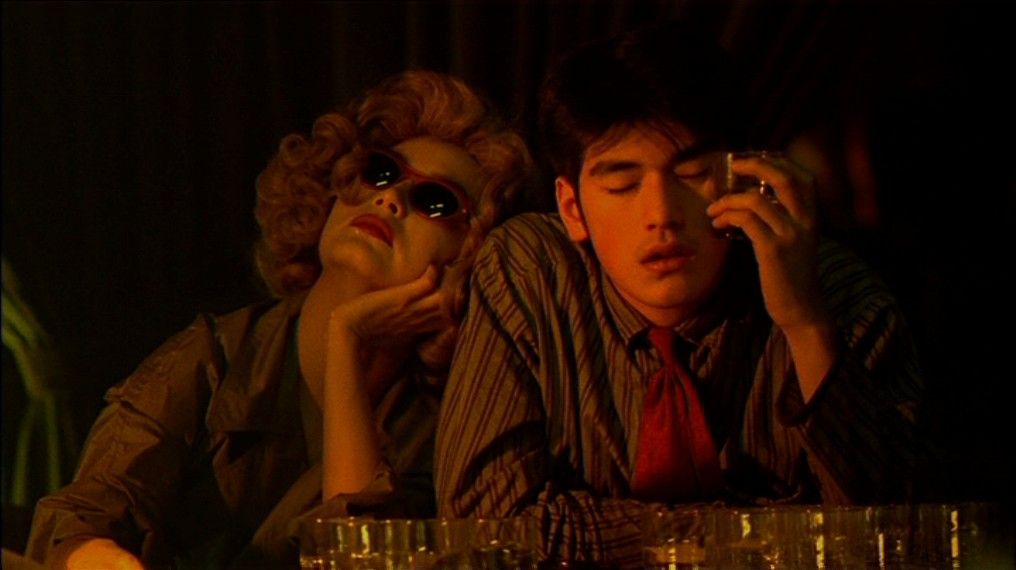 | ||
| Our first story. |
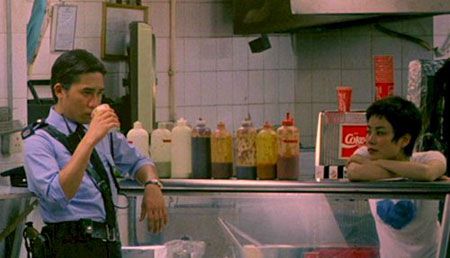 |
| Our second story. |
The
two stories, while they share several elements, have very different tones. In the first, there is a distinct sense of
danger and gangster underworld activities, all channeled through our
blonde-wigged smuggler. She is not a
woman to be trifled with; she actively reminded me of Phyllis Dietrichson. Meanwhile, she is counterpointed with 223, a
man so immature he is clearly still a boy; in fact, he turns 25 in his
tale. He is childish in his pursuit of
his ex-girlfriend, childish in his buying of May 1st pineapples,
childish in his eating of platefuls of fries with ketchup, and childish in his
decision to fall in love with the next woman he sees. The fact that Wong brings these two together
is interesting and unexpected, as they both manage to give one another what is
needed despite their disparate temperaments.
She helps welcome him into adulthood in the chastest possible way, and
he steels her nerve to do what her job requires. We have the odd dichotomy of cold, cruel
gangsters with wide-eyed, naïve adolescence.
The
second story deals with neither.
Although we still have a cop known only by his badge number, we now have
a full blown love story of two people scared to fall in love. This is sweet and endearing, whereas the
first story was gritty and dank. 663 is
too wrapped up in his own sorrow to realize Faye likes him, but that’s probably
a good thing for her, as she wouldn’t know what to do if he really liked her
back. Flighty and quirky, Faye Wong is
phenomenal in her role here; I was shocked to discover she was originally a
singer, and this was one of her first large acting roles. She is a perfect counterpoint to Leung’s swoon-worthy
introverted intensity; I found myself wishing more and more, harder and harder
that these two souls could find a way to be together. As off-kilter as their courtship is, it is
nonetheless winning and winsome.
Overall,
despite the romance in both sections of the film, Wong seems to comment far
more on the nature of urban youth rather than simply their love stories. Throughout the film, we are met with
characters that do not have names. Our
two cops are known primarily as their badge numbers – and that’s all. The blonde-wigged smuggler does not have a name
at all, and I only know that Faye is the name of the girl behind the counter in
the second story because IMDB told me so.
There is a profound sense of identity lost with these characters. They live their lives constantly surrounded
by others in their urban jungle of Hong Kong, but they fail to connect in
meaningful ways. The world whizzes past
them every day, but they are too narcissistic or immature or disillusioned to
either notice or care. Both tales end in
ambiguous fashion, doubtful of whether or not the souls they feature actually
managed to enact long-lasting change, uncertain of whether they will find the
respite they so desperately crave with others.
There is optimism laced into the endings, but Wong refuses to spell
everything out for us, leaving it up to the imagination of the viewer.
Along
with the tale of urban disillusionment, there is tremendous style in Chungking
Express. Wong plays fully and
freely with all kinds of camerawork, including slow-motion, stop cuts, canted
angles, handheld jittery shots, and the fascinating combination of slow-motion
with sped-up shots. This helps imbue the
movie with a sense of frenetic modernity and disjointed connections. Wong lights the film with mostly reds,
yellows, greens, and blues, occasionally making everything on screen appear
slightly sickly. It’s the same bright
color work I remember from his In the Mood for Love.
I
suppose I would call Chungking Express a “romantic comedy
drama.” There are elements that are
quirky and funny, plenty of elements that are very sweet, but the whole film is
tinged with a sense of sadness and anxiety.
It’s a diverting film, telling its tale with a heaping helping of style,
and you’ll be left humming that obnoxious Cranberries tune for the next four
hours.
Arbitrary
Rating: 8/10.
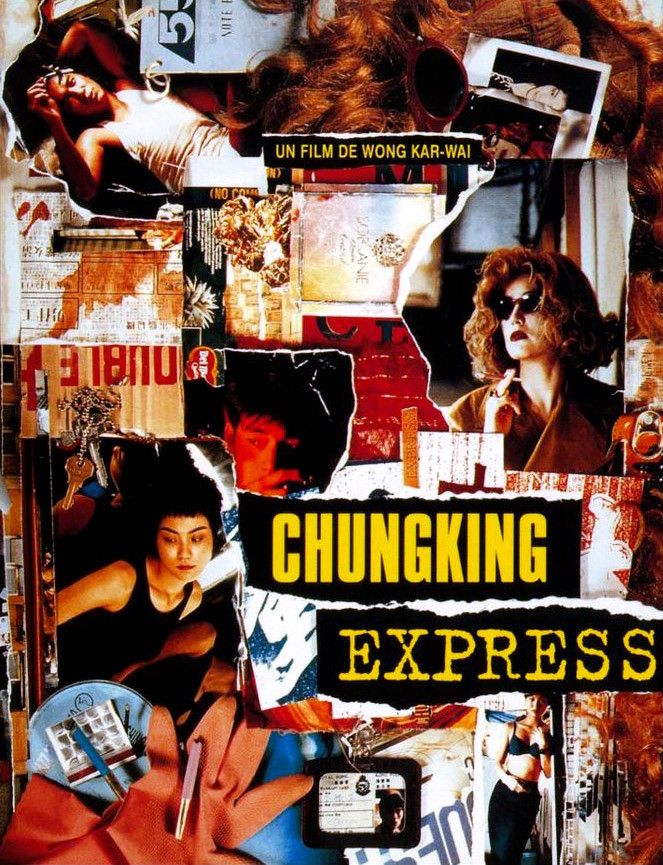
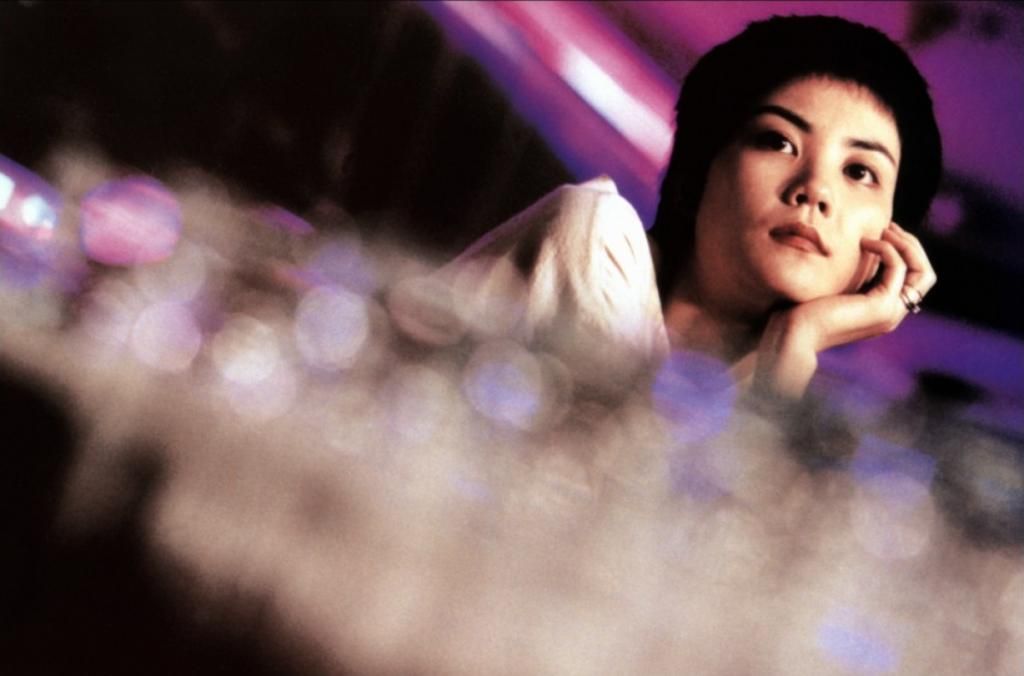
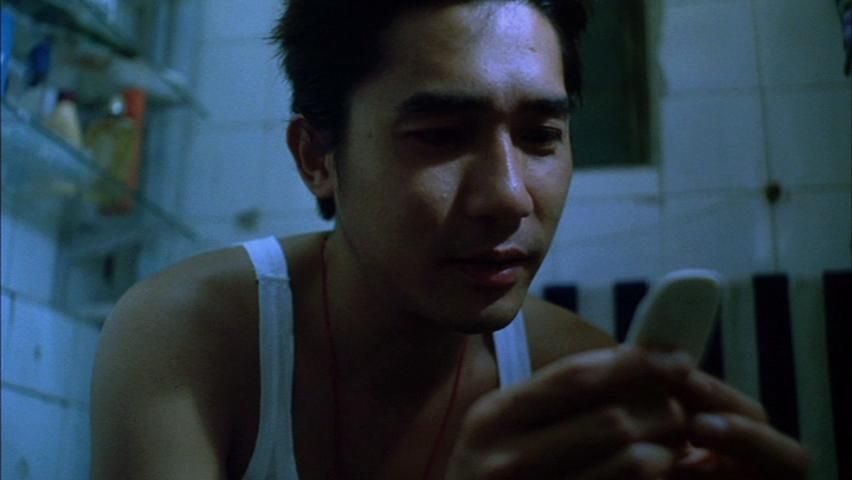
Good review. I liked some parts of this quite a bit, while other parts were just there. I actually would have been interested in seeing a full movie on either of the stories. I got the distinct impression, though, that that was as much as was written for each and he just put them together in the same film just for the hell of it (like Tarantino and Rodriguez did in From Dusk Till Dawn.)
ReplyDeleteI had exactly the same reaction as you to Faye Wong. I went to look at what else she had been in and that's when I found out she was primarily a singer.
It's definitely odd in that the two stories are very separate, and just kinda randomly mashed together.
DeleteI think I liked the second story much better than the first one. Leung and Wong are both so sympathetic and sad, and I want them so much to be happy but I'm not sure if they can be.
Glad to know I'm not the only one who was so surprised about Faye Wong! She was so good, it's really hard to believe that she comes to acting as a second career.
adidas nmd
ReplyDeleteadidas nmd
michael kors handbags
hermes belts for men
http://www.cheapairjordan.uk
nike roshe uk
nfl jerseys from china
kobe shoes
michael kors outlet
fitflops outlet
yu1vs883hiza
ReplyDeletegolden goose outlet
golden goose outlet
golden goose outlet
golden goose outlet
golden goose outlet
golden goose outlet
supreme outlet
golden goose outlet
golden goose outlet
golden goose outlet